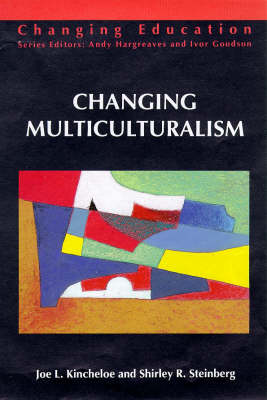Changing Education
1 total work
This book acknowledges the reality that in the late 1990s we live in a new racial context. The reassertion of white supremacy has created a social and educational world where many whites are angry, feel racially victimized, and stand ready to protect their privilege. Such conditions breed fear, hatred, and further violence. Any multicultural education that fails to recognize these conditions will follow the path of irrelevancy - a path too often taken by previous educational reforms. While concepts of cultural difference and diversity are certainly addressed in Changing Multiculturalism, one of its key features involves the analysis of positionality. How has one's race, ethnic, class, and/or gender consciousness been produced? What is the impact of this consciousness production on one's identity? In these ways, the book attempts to move beyond traditional texts in multicultural education. Both critical and practical, this book promises to engage the reader in a critically grounded multiculturalism.
